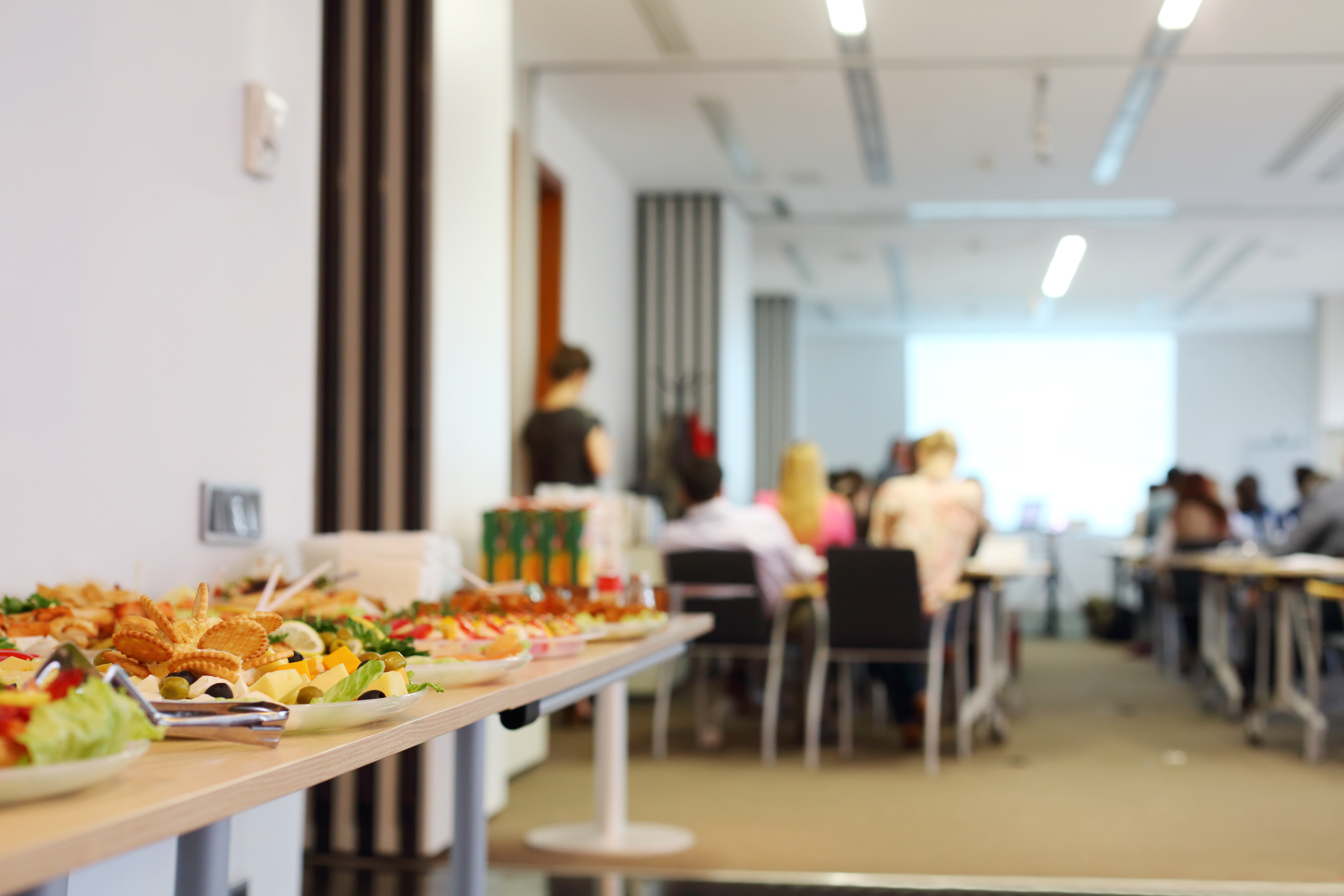
Whether or not to include a meal at a free seminar is a long-debated question in the financial services industry. When you’re already investing money to get in front of (likely cold) prospects, is adding a meal worth the cost and coordination?
Events can be structured in a lot of different ways, but there are three distinct benefits that adding meals to your seminar can benefit your conversion rate:
Nicer venues. While there’s a lot to be said for learning-focused venues like libraries, community centers, or classrooms, meal venues can be more inviting and impressive. If you choose the right one, of course. Always scope out a restaurant before hosting an event there. Choosing well-known restaurants can provide comfort through familiarity for your seminar guests. These venues allow prospects to relax and enjoy good food and drinks while mingling with each other, discuss the presentation with their party, or ask you questions. The right environment helps take the edge off raising their hand for a question or sticking around to talk to you after the event.
Higher obligation. Offering a free meal means more people are going to show up to your seminar. More people will RSVP because of the free food, but more of those people will actually show up because they know you already ordered their food or added them to your headcount to save them a seat. There will be an increased obligation people feel to show up even if their day didn’t go as planned or they are just feeling lazy that evening. (Think about how bad you feel thinking about skipping an event when you told the host you’d be there – especially when food is involved.) To really optimize this, make sure you properly confirm responses, and ideally send a reminder their way the day before.
More time. Your presentation’s best friend is time. Never serve your meal before or during your presentation – wait until after. By giving a presentation and serving a meal afterwards, you give your prospects time to process your presentation, enjoy some their food, and (most importantly) book an appointment. That meal essentially bought you an additional 30 minutes with a group of prospects who have already said they are interested and started to get to know you. Whether you stick around and work the room yourself, or your staff starts with small talk and leads to asking for appointments, it is an ideal time to convert. These leads aren’t in a hurry to leave, are in the right mental place, and should be in a good mood (good, free food does that). This time is golden.
These three benefits compliment the natural urges people feel and respond to and have natural consequences as a result. Will you end up with “plate lickers” only there for the food? Possibly! But even if you don’t convert them, you have increased chances of converting the other guests. So, if the question is “should I add a meal to my seminar?” these three benefits should help guide you toward an answer.
Nicer venues & meals mean more responses. Meals & obligation mean higher attendance. With more people in the room and the extra time the meal buys you, you set more appointments!

Kim Weber is the Marketing Project Manager at USA Financial. Since joining in 2021, she has overseen several marketing programs that help...

Have you noticed how fast technology is changing the way you work with clients? Artificial Intelligence (AI) isn’t just a buzzword anymore; it’s transforming how you connect, deliver value, and grow. As financial advisors, you're positioned at the unique intersection of technology, finance, and marketing—and the pace of change shows no signs of slowing down.

In today's competitive landscape, your advisory firm is more than just a name. It's your promise, your reputation. But how do you know if your brand is working for you, attracting the right clients, and communicating your value effectively? The answer lies in a brand audit.
.png)
You've built a solid financial advisory practice, but potential clients can't find you online. Many advisors struggle with this exact challenge and feel overwhelmed by the technical jargon and conflicting advice surrounding search engine optimization (SEO).

Have you noticed how fast technology is changing the way you work with clients? Artificial Intelligence (AI) isn’t just a buzzword anymore; it’s transforming how you connect, deliver value, and grow. As financial advisors, you're positioned at the unique intersection of technology, finance, and marketing—and the pace of change shows no signs of slowing down.

In today's competitive landscape, your advisory firm is more than just a name. It's your promise, your reputation. But how do you know if your brand is working for you, attracting the right clients, and communicating your value effectively? The answer lies in a brand audit.
.png)
You've built a solid financial advisory practice, but potential clients can't find you online. Many advisors struggle with this exact challenge and feel overwhelmed by the technical jargon and conflicting advice surrounding search engine optimization (SEO).